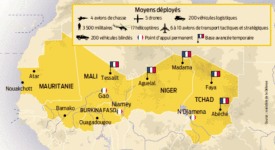Pierre-Alain Coffinier (Robert Schuman Foundation)
British Prime Minister Theresa May announced that she would trigger Article 50 of the Lisbon Treaty by the end of March 2017 at the very latest. The process of withdrawal and arrangement of future relations will be a complicated one and from the various statements made by representatives of EU member countries we can discern certain negotiating positions. The underlying assumption is that any restriction on the free movement of people made by the UK will automatically lead to the loss of access to the single market.
Possible forms of the British-EU relations after Brexit can be derived from the existing models. First, the Norwegian version is based on the membership in the European Economic Area (EEA) and hence on the access to the EU single market. Norway must respect all four freedoms of movement and contribute to the EU budget without having decision-making powers. Second, the relations between Switzerland and the EU are regulated based on bilateral agreements. Switzerland, however, does have neither access to the single market in services, nor control over immigration. Third, the free trade agreement, such as the one completed between the EU and Canada, covers services, goods and investment, but on a smaller scale compared to the above mentioned models.
Regardless of what will eventually be the most acceptable option for both parties, the Brexit process itself will first require an agreement on withdrawal. It will mostly cover topics such as budget, rights, institutions and others. The agreement on the arrangement of future relations should ensure continuity of close cooperation in the areas of security, foreign policy or environmental protection. To negotiate a chapter on the economy will undoubtedly be challenging. The simplest solution would be if the Kingdom remained in the EEA, but given the current British sentiment, this option seems highly unlikely. In the light of the expected difficult negotiations, a transitional agreement for a certain period of time cannot be excluded as an option.
Moreover, Scotland and Northern Ireland, which predominantly voted for the UK to remain in the EU, contribute to Britain’s unenviable position. The Scottish strong financial sector and agriculture that depend on the EU Common Agricultural Policy are very much jeopardized by Brexit. As for Northern Ireland, it is the largest recipient of structural funds in the UK. It is therefore a great paradox that Great Britain, which seeks a greater autonomy and more prominent position in the world by withdrawing from the EU, is now actually faced with the prospect of disintegration.







